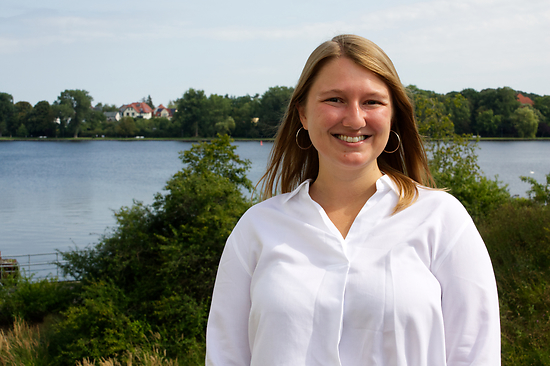News & Press Releases
All
Press Releases
News
Defo News
August 17, 2023 | News | Call for Proposals
The Max Planck Institute for Demographic Research (MPIDR) is highly interested in developing partnerships with African scholars and institutions whose research is related to population studies. Therefore, we support the call for proposals for three Max Planck-Humboldt Research Units in Subsahara-Africa by the Max Planck Society and the Alexander von Humboldt Foundation. more
August 16, 2023 | News | New faces at MPIDR

New Face at MPIDR: Megan Evans started on August 1st. She comes from Pennsylvania State University, USA, where she received her Ph.D. in Sociology and Demography. The title of her dissertation is "Racialized Place-Making: An Investigation of Race, Place, and Value". Her dissertation examines how Home Owners' Loan Corporation (HOLC) appraisers, who were responsible for institutionalizing redlining in the U.S. housing market, considered the Black racial composition of a community as influential to lending risk by examining their language choices and written description of the neighborhoods they chose to redline. Findings provide insights into the social process through which the racialization of lending risk occurred, and identifies the language used in service of preserving neighborhood racial identities. Prior to Penn State Megan did her undergraduate studies at Youngstown State University and received her B.A. in English and Sociology in 2013. She joins the Laboratory of Population Health at MPIDR. more
August 14, 2023 | News | New Publication
Every year, millions of people decide to leave their homes and move to another country. The reasons are many and varied. People flee war and climate change, or follow a job to another country. But what happens to their health when they leave home and grow old in another country? Su Yeon Jang, a researcher at the Max Planck Institute for Demographic Research (MPIDR), together with Anna Oksuzyan, Mikko Myrskylä, Frank van Lenthe (Erasmus MC University Medical Center) and Silvia Loi, explores this question in their latest paper. more
August 09, 2023 | News
For our German audiences: Nicole Hiekel was a guest on the Ach-Mensch podcast by detektor.fm and the Max Planck Society. In the new series on "Freedom", she talks about how social norms and individual attitudes towards gender equality influence the decision whether, when and in which family model we become parents and how we shape our lives as parents. more
July 31, 2023 | News
Self-actualization, personal freedoms, and self-fulfillment contribute to childbearing behavior. Personality traits such as empathy and extroversion influence the likelihood of deciding to be a parent. more
July 25, 2023 | News | Award
Angela Carollo won the award for the Best Student Poster at the 37th International Workshop on Statistical Modelling which was held in Dortmund July 17-21, 2023. more
July 24, 2023 | News | New Publication
The stillbirth rate in Germany has been rising steadily since 2009. The reasons for this are still unclear. Researchers at the Max Planck Institute for Demographic Research (MPIDR) and the University of Rostock have used decomposition analysis to investigate the influence of demographic factors such as the age and nationality of pregnant women on the increase in the stillbirth rate in Germany. more
July 18, 2023 | Press Release
Can extending work lives be a solution to the future problems of an aging society? If everyone works longer and retires later, the number of people paying into the pension system will increase. Little is known about working life in Germany. Researchers at the Max Planck Institute for Demographic Research (MPIDR) in Rostock and the Federal Institute for Population Research have now conducted a study to examine how the length of work life in Germany has changed and what influence the numerous labor market and pension reforms of recent decades have had. more
July 14, 2023 | Press Release
Social media have become an integral part of everyday life. However, numerous studies have produced conflicting results on how the use of these applications affects the mental health of their users. A common assumption is that the use of many different social media platforms has a negative impact on users' well-being. Researchers Sophie Lohmann and Emilio Zagheni, Director of the Max Planck Institute for Demographic Research (MPIDR) in Rostock, Germany, investigated this assumption. In their study, they used a statistical technique to adjust for the fact that people who use a number of social media platforms may be different to start with. The result of the study shows that the use of many different social media platforms is not a significant risk factor for the well-being of the users. more
July 13, 2023 | News | Conference
Our colleagues from the Laboratory of Digital and Computational Demography will present their research at the 9th International Conference on Computational Social Science in Copenhagen (Denmark), July 17-20, 2023. more